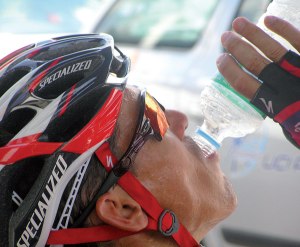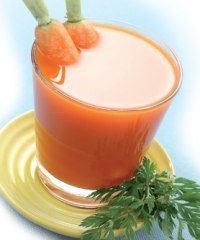You only have to take a trip to the local sports ground or gym to see the huge variety of sports drinks, vitamin waters, juices and protein shakes that are available for both elite and recreational athletes. Obviously there is water, but it is also useful to know at what stages can other fluids be used to compliment water as the drink of choice, how much we should be drinking and when is the best time to consume them?
Sports Drinks
What are they? Specially formulated mixes of carbohydrates and mineral salts.
When should you use them? Intense sessions lasting less than 60 minutes.
Best for: Endurance athletes, those at risk of cramping, high training loads ( less than two hours each day).
 Remember: A standard bottle of sports drink has as many kilojoules as 3 slices of bread. The term sports drink refers to a group of beverages that were originally formulated in the United States to help a local gridiron team prevent dehydration. Now, more than 50 years later we have a range of specially formulated sports drinks that contains a small amount of rapidly absorbed carbohydrate along with the mineral salts, sodium and potassium, in concentrations known to assist in optimal rehydration processes in the body.
Remember: A standard bottle of sports drink has as many kilojoules as 3 slices of bread. The term sports drink refers to a group of beverages that were originally formulated in the United States to help a local gridiron team prevent dehydration. Now, more than 50 years later we have a range of specially formulated sports drinks that contains a small amount of rapidly absorbed carbohydrate along with the mineral salts, sodium and potassium, in concentrations known to assist in optimal rehydration processes in the body.In elite level sport, sports drinks have an important role in keeping athletes optimally hydrated. Sports drinks are also particularly useful in endurance events longer than 90 minutes, such as road cycling and triathlon, as the carbohydrate found in sports drinks serves as a useful energy source for the muscles.
“For the average person, the best time to use a sports drink is as a recovery drink immediately after an intense workout, especially if it will be an hour or more until the next meal or snack is eaten.” – Susie Burrell
Vitamin Waters
What are they? Flavoured mix of carbohydrates and vitamins.
When should you use them? As an alternative to fruit juice, at most once a day.
Best for: Those not watching their weight.
Remember: Few people are lacking in the vitamins found in vitamin water and one bottle contains as much carbohydrate as two slices of bread. The launch of ‘vitamin’ waters onto the market over the past twelve months has raised much interest as powerful marketing campaigns link these beverages with positive health outcomes using the words ‘energy’ and ‘vitality’. The reality is that few individuals are lacking in the vitamins that relatively high kilo joule drinks contain, which means they become a rather expensive substitution for fruit juice in the diet.
Protein Shakes
What are they? Supplementary sports supplements containing protein and carbohydrates.
When should you use them? Immediately after resistance sessions or as a mid meal replacement.
Best for: Weight gain, muscle growth and recovery.
Remember: some carbohydrate /protein mixes can be high in sugar.
Protein based drinks come in a range of options including ready to drink tetra pack mixes of carbohydrates and proteins, pure protein powder and carbohydrate/protein powder mixes. Protein supplements have been shown to increase muscle growth and recovery on hypertrophy (weight gain) plans and can be a nutritious mid meal option for busy athletes. Look for options that contain less added sugar and mix with skim milk for a rapidly absorbed, post workout recovery drink.
Fruit Juice
What are they? Mixes of fruit based juice ranging from 25-100% concentrations.
When should you use them? Once each day; a good high GI recovery drink.
Best for: Vitamin intake.
Remember: One large (600mls) fresh fruit juice contains as much as a meal’s worth of energy. While fruit juice, particularly 100% fruit juice is perceived as an extremely nutritious food choice, the truth is that fruit juice contains a relatively high concentration of sugar. While there is often also Vitamin C and beta-carotene, the precursor to Vitamin A, the kilojoule load means that fruit juice should not be consumed freely. Fruit juice is also highly acidic, which means it can be highly eroding for the teeth. The best type of fruit juice to have is 100% fruit juice with no added sugar and just one serve each day. Another viable option is vegetable based juices, which contain large amounts of antioxidants and nutrients without as much sugar as fruit juices.

Soft Drink and Cordial
What are they? Concentrated mixes of sugar
When should you use them? Diet varieties only, sparingly.
Remember: Soft drink and cordial contains large amounts of sugar and some varieties also have a number of artificial colours and preservatives. Soft drink and cordial have all been grouped together as basically they are all made of simple sugars and contain little other nutrition. Coloured soft drinks and cordials may also contain a number of artificial food colourings, some of which have been banned in European countries. If you do decide to consume some sweetened beverages, look for the ‘diet’ or ‘zero’ varieties, and use them in controlled amounts, at most once each day.


